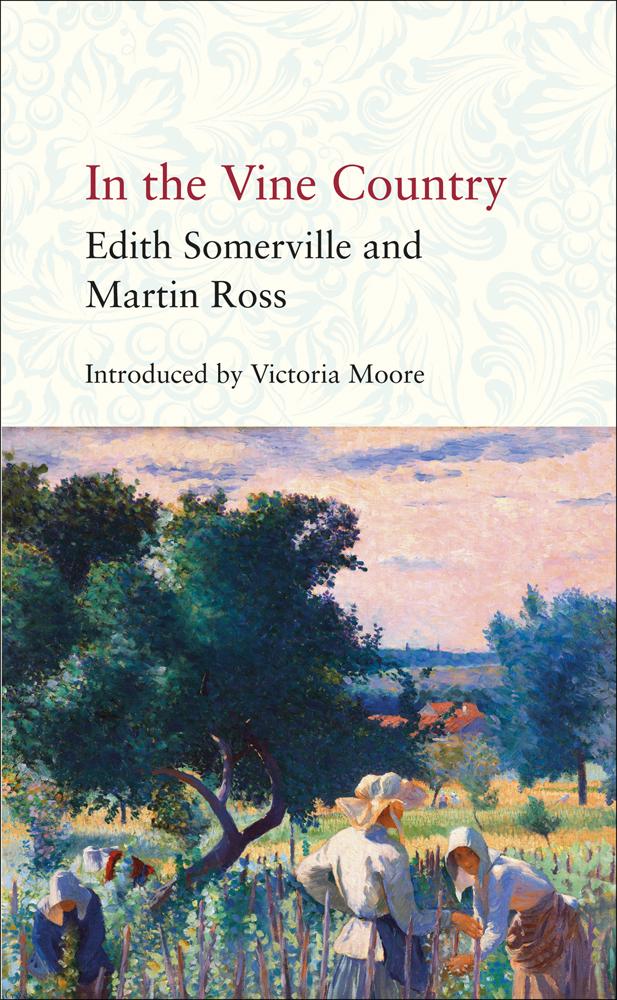

In the Vine Country
Edith Somerville
and Martin Ross
IN THE VINE COUNTRY
Published 2021 by Académie du Vin Library Ltd academieduvinlibrary.com
Founders: Steven Spurrier and Simon McMurtrie
Publishers: Simon McMurtrie and Hermione Ireland
Editor: Susan Keevil
Art Director: Tim Foster
Designer: Joe Foster
ISBN: 978-1-913141-14-1
Printed and bound in the UK
© 2021 Académie du Vin Library Ltd.
All rights reserved. No parts of this publication may be reproduced, stored in a retrieval system or transmitted, in any form or by any means, electronic, mechanical, photocopying, recording or otherwise, without the prior permission of the publishers.
Académie du Vin Library Classic Editions
The Académie du Vin Library ‘Classic Editions’ lie at the very heart of the books we publish. When Steven Spurrier and I first talked about a new publishing imprint over lunch at our club (where else!), it was the older wine books we thought of first. These islands have been the heartland of wine appreciation, it seems, since Chaucer’s time and there is much literature to draw from: wine writing that is elegant, informative, inspiring, often eccentric and frequently witty. Some of it feels dated now but that’s part of its charm. What a shame it would be, we said to one another, if the words that inspired our own wine careers were lost to today’s reader. Indeed, they shouldn’t be! So while we at the Académie celebrate new authors, new adventures and new perspectives on our pages (and always will), we are now very proud to devote a new series of ‘time capsule’ titles to the wine writers who handed the job – if you can call it that – over to us.
I have shelves of these books, and quite a few favourites. Here, we welcome back the two Irish cousins Edith Somerville and Martin Ross, wine explorers (as well as huntsmen) who have delighted and charmed everyone who’s met them since 1893. What lives on is their special take on the landscape they visited. It’s incredible what you can learn from them.
Hugh Johnson
This winery moment stands out as being virtually the only time in the book when Somerville and Ross actually describe the taste of or the act of tasting wine. They’re good on smells, mentioning, for instance, the ‘sour, heady smell of the fermentation’ in the winery. Later, they refer in passing to the ‘rich velvety wine’ of Saint-Emilion and drink some of a previous vintage of the Grand Saint-Lambert without commenting at all on its flavour or pleasingness, but that’s about it. Offered a sample of the Saint-Lambert grape must, their overwhelming response is one of horror at imbibing a substance that has been in close contact with so many legs and feet. ‘Disgusting’, is the judgement. It doesn’t matter. This isn’t a book about wine in what has become the traditional sense and it tells us a lot more about wine, and about Bordeaux, than some that are. Those who already know the region will enjoy travelling around it in their mind’s eye, matching what they know to these 19th century experiences. Those who have never visited will learn a lot, not just in a historical sense, but in what is still applicable today, from the sound of the local accent (‘He said bong [bon] and biang [bien] in the friendly British way that they pronounce such words in the Médoc’) to the appearance of the Médoc landscape (‘low slopes seamed and striped with vines till they looked like green corduroy’). And all will have the pleasure of two spirited guides who wear their knowledge deceptively lightly and wield their pens like lances.
IN THE VINE COUNTRY
The following pages, with their accompanying illustrations, originally appeared in the columns of The Lady’s Pictorial (1880–1891).
his cuvier and all else that we might care to see. ‘And peasants?’ we said vaguely; ‘we want to talk to the peasants.’
Madame looked slightly bewildered.
‘Il y en avait bien assez de ces gens-là! ’ she said, with a contempt that we afterwards understood, when we heard she had been a peasant herself. ‘I have a peasant of my own; ces dames can go and talk to her as much as they wish.’
The broad esplanade was full of sun, and dogs, and sailors, as we debouched upon it with our note-books, sketch-books, and the Kodak, at some nine o’clock of the morning. A steamer was hooting at the wooden pier over which we had crawled in gloomy fatigue the night before; a boat with a big lug-sail was performing wonderful and strange manœuvres of going about with the help of the current; and a full-rigged ship, with a dazzling green hull, was being towed up to Bordeaux by a black and misshapen tug-boat called Ercule, the family name of all Bordeaux tug-boats. It seemed to be a market or fête day of a minor sort in Pauillac; something connected with a saint, probably, which in Ireland would have meant that every one would have gone to Mass and done no work for the rest of the day; but here every one worked, just as they did on Sunday, and the people who had no work to do went about and enjoyed themselves. We remember once asking a man at home why the people were going to Mass and what holy day it was. He said he didn’t rightly know, but he thought that the ‘Blessed Vargin’ was implicated. We did not find out who or what it was that was implicated in the Pauillac fête, but we take this opportunity of thanking them for celebrating themselves on our first day in the Médoc. All manner of unexpected things and people went by on their way to the town that straggled
on the hill behind the Boulevard de la Marine. Donkey-carts, waggons, and charettes, driven by brown-faced, white-capped women, or boys in flat felt caps of scarlet or blue – the berets that are found up the west of France from Biarritz to Brittany – a man on stilts, stalking by with the grave composure of a heron; and, creeping through the midst of all these, came now
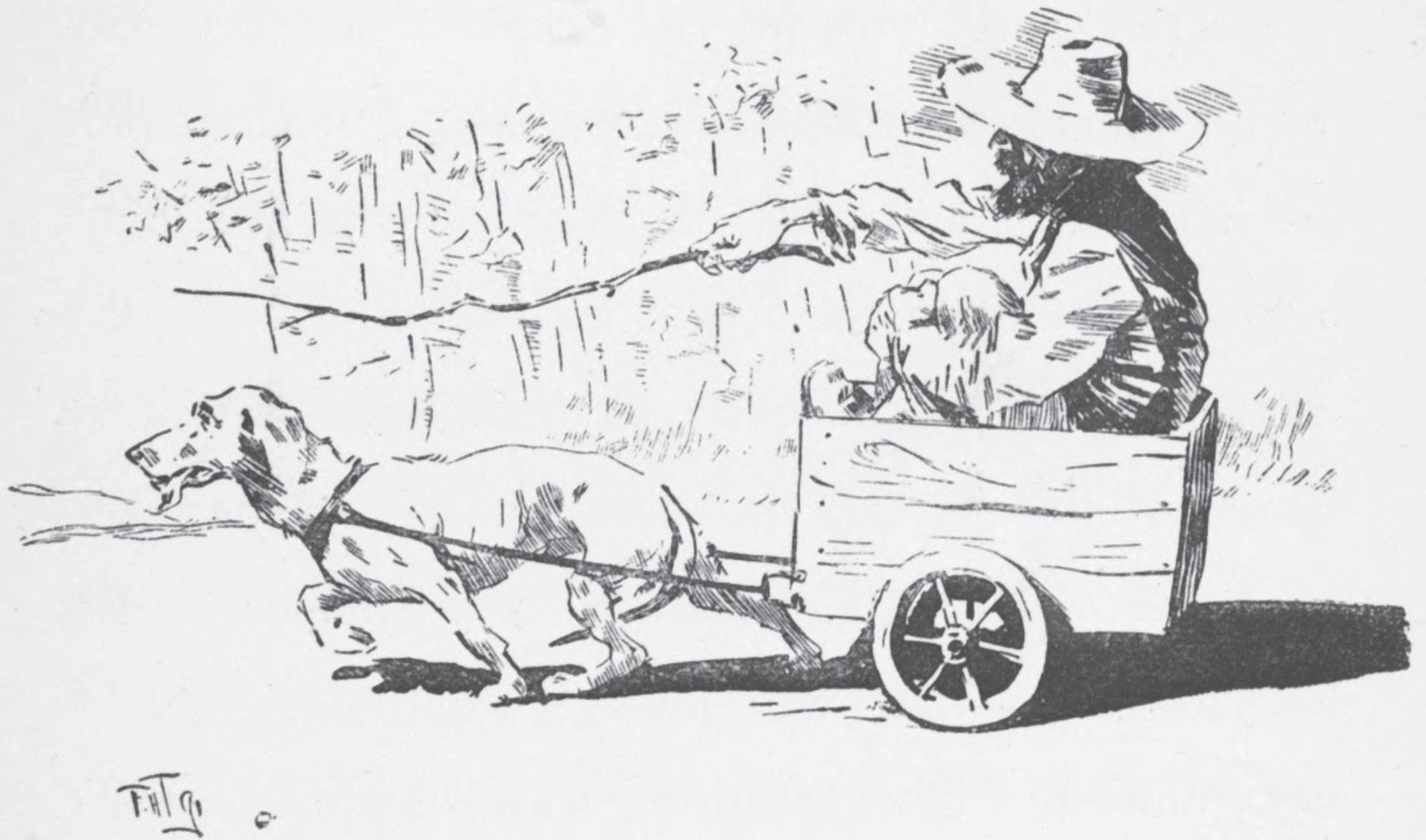
and again a long cart drawn by fawn-coloured oxen, who paced with that swinging saunter that became afterwards so familiar to us, their faces and sleek bodies covered absurdly with a thick netted material to keep the flies off, and their neatly-shod hoofs keeping time like clockwork.
We had been told by Madame the way we should go, and we walked in it with alacrity, especially when it involved leaving the white, sandy high-road, and crossing a vineyard, the property of our amiable hostess. It was the first time that we
A MEDOC DOG-CART.
Médoc. It was a kind of large window in the wall, about four feet from the ground, with a heap of brown and bare grape stalks outside it, and, looking in, we saw in full swing the working of one of the oldest trades in the world. It must be admitted that we found it startling. In the mouth of the archway was a broad and shallow wooden receptacle, called the pressoir ; heaped up in it were mounds of grapes, all black and shining, with their splendid indigo bloom gone for ever, and, splashing about amongst them, barefooted, and ankle-deep in the thick magenta juice, were the treaders of the winepress. It was those bare feet, crimsoned with juice, that took our whole attention for the first few minutes. We had been given uncertain warnings as to what we might or might not see, but we had always hoped against hope for sabots. I think the proprietor felt for us – not sympathetically, of course, but compassionately. He hastened to explain that the fermenting process purified everything; the old plan had been for the men to join hands and dance round and round the pressoir, trampling the juice out of the grapes, and singing a little sacrificial vintage song, but now nothing like that obtained. All this was very consoling and nice, but it did not in the least mitigate the horror that fate had in store for us.
We had watched the carts unloading the big douilles packed with grapes at the mouth of the archway, and had heard, and straightway forgotten, how many douilles were yielded by an acre. We had seen with considerable repugnance the wiry and handsome little blue-clad workmen scrub the berries from the stems on the grillage, a raised grating that let the bruised grapes fall through, while the stalks remained on the top. We had watched them shovel the grapes in dripping shovelfuls into a small double-handled barrel, which was then snatched up by
two of them, who, with it on their shoulders, would trot across the dusty floor of the cuvier, up two ladders that leaned side by side against a tall vat, and, having emptied their load into this immense maw, would trot back, and jump into the pressoir again. Through all these things we clung to the beautiful, purifying thought of the fermentation, and said to each other that when we ordered our bottle of Grand St Lambert at our English hotel we should see that we got it, and would think fondly as we drank it of that good, comforting process. At this juncture one of the barefooted and blue-clad workmen approached with a small tumbler in his singularly dirty hand.
‘These ladies would like to taste the moût ,’ he observed, dipping the tumbler in a tub half full of the muddy juice that was trickling out of the pressoir. He proffered us the tumbler with a bow, and we looked at each other in speechless horror.
We were quite certain we should not like to taste it; but there in front of us was held the tumbler, with behind it a pair of politely observant black eyes, and an unbroken flow of commendation in sing-song Bordelais French. We were assured that the moût was delicious, mild, and sweet, that the vintagers drank it every day by the gallon, and, lastly, that it was very wholesome; and we replied with a ghastly smile that we were not concerned about its wholesomeness, we did not contemplate a surfeit just at first; while all the time we heard the splashing of the feet in the pressoir, and the quiet trickle of the juice into the tub. The inevitable moment came, in spite of temporising, and the glass was put into my hand. The stuff was a sort of turgid magenta, thick and greyish, with little bubbles in it, and the quarter of a teaspoonful that I permitted to ooze between my lips was deadly, deadly sweet, and had a faint
IN THE VINE COUNTRY
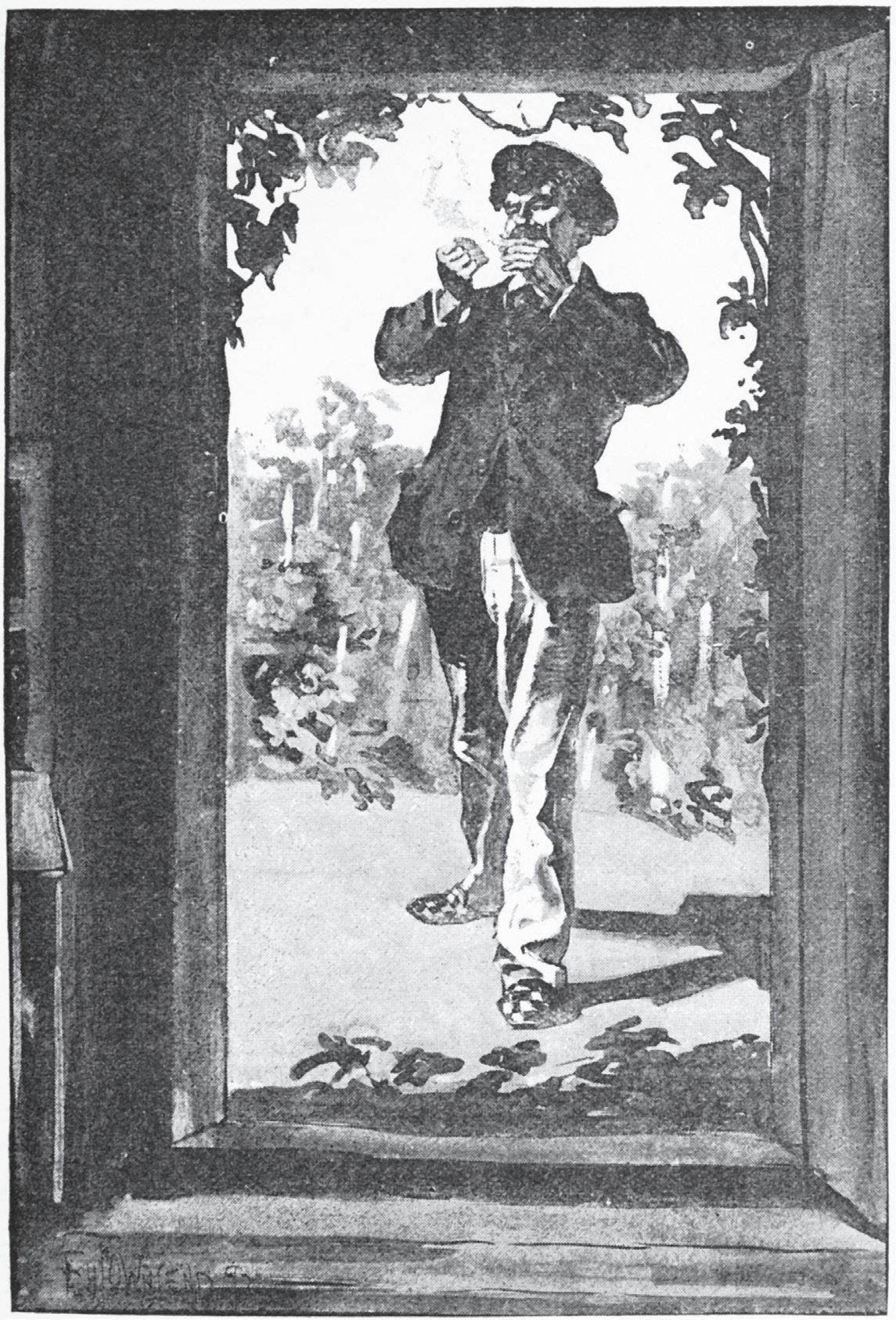
M BLOSSIER, WITH HIS CIGARETTE, APPEARED AT THE DOORWAY.
could incite M Blossier, and after an hour of combat with it, we arrived at the hotel with our eyes full of sand, and our hair standing aureole-wise round our faces.
Madame herself came forth to meet us, with a note in her fat hand, and a manner in which some slight admixture of interest, almost of respect, was discernible. We read the note. It was even worse than we had expected; it was a request couched in admirable English that we would be ready to meet the writer at eleven, and he would then give himself the pleasure of conducting us round the vineyards of the neighbourhood, and would finally have the honour of escorting us to his own château , where, he hoped, we would dine. The large commercial face of the hall clock showed that we had just one quarter of an hour before this flight into French society in which to eliminate the traces of an experience that would probably have horrified our host beyond recovery, to cast out the accent that we had acquired with such fatal facility from Suzanne and M Blossier, and to scour through the all-sufficing pages of Bellows’ Dictionary for phrases that should lubricate our efforts at highclass conversation.
It was not pleasant, either in prospect or accomplishment, but we did it. We were even sitting in the salon as ladies should, putting on tight gloves, when a landau and pair drove to the door, and we were told by the sympathetically excited Louis that a gentleman wished to see us. In another five minutes we were bowling through Pauillac, with parasols up, conversing in free, untrammelled English with the excessively kind and unselfish person who had given a large slice of valuable time to the toil of taking two ignoramuses to see the innermost secrets and perfections of wine-making. Our host told us, in his
IN THE VINE COUNTRY
More and yet more aisles followed, catacombs of silence and black heavy air, but full of the strange life of the wine that lay, biding its time according to its tribe and family, in a ‘monotony of enchanted pride,’ as Ruskin has said about pine trees.
We saw very little more of wine-making, when we got out again into the blustry heat, and crawled back to the carriage,
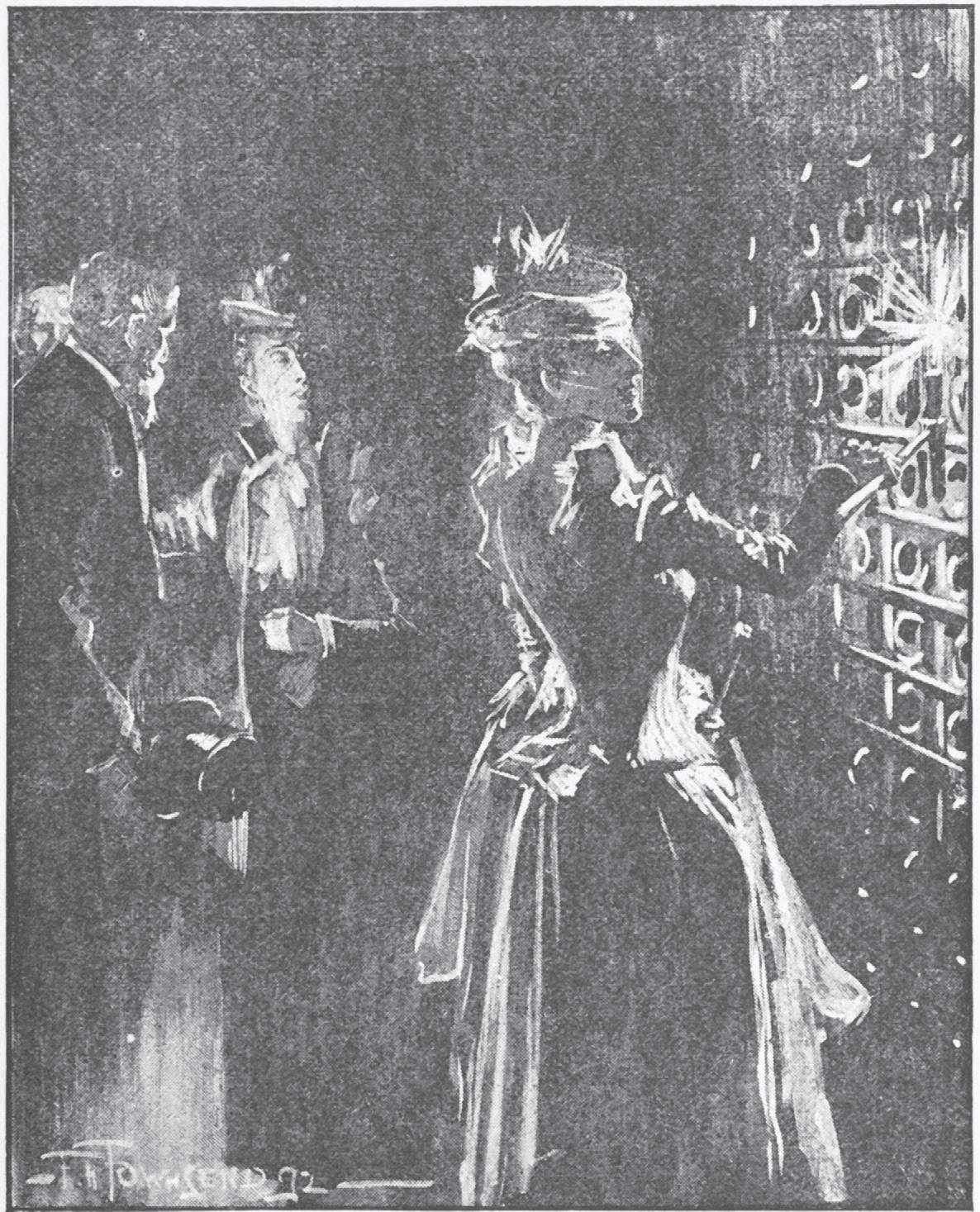
ON EITHER SIDE THE TIERS OF BOTTLES LOOKED AT US OUT OF THEIR PARTITIONS WITH COLD UNCOUNTABLE EYES.
feeling cheaper and more modern than we had done for some time. A new phase of sight-seeing was in store for us, and one with which we were even less fitted to compete. The inner life of a French country-house does not come within the scope of the ordinary tourist; and when, later in the afternoon, we were led up the curving and creeper-wreathed steps of a château , and ushered into an atmosphere of polished floors, still more polished manners, afternoon tea, and a billiard-table, there was only one drawback to perfect enjoyment of the situation. The ladies of the household – there were several of them – did not speak English, and at once that delusive glibness that had been nurtured by talking to Suzanne began to wither in the shadeless glare of drawing-room conversation.
We shall never know what absurdities we said, or what bêtises we committed; we can only feel satisfied that in a general way we said and did the wrong thing, and we can but ‘faintly trust the larger hope’ that our kind hosts made due allowance for insular imbecility. Whatever they may have thought of the strangers so unexpectedly brought within their gates, they kept alike their countenances and their counsel; and when the guests had faltered and smirked through their difficult farewells, and hidden their hot faces in the shelter of the landau, they were aware, as they drove away in the clear southern starlight, of two great fragrant bouquets of roses and heliotrope on the seat opposite, the last charming expression of the hospitality of the Médoc.
IN THE VINE COUNTRY
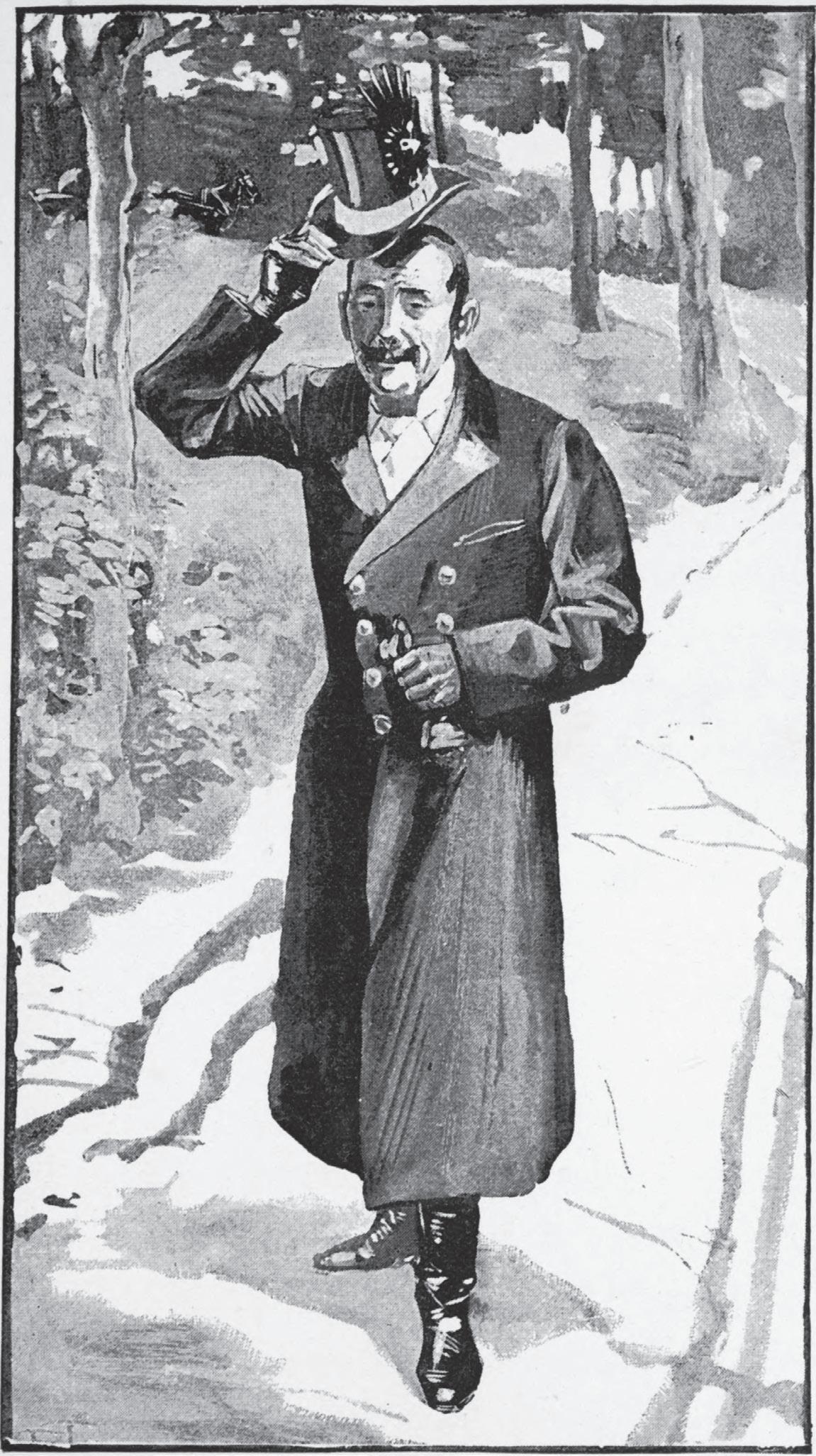
THE COCHER.
Ollendorff’s earliest exercise is a thrilling romance when compared with the remarks that we churned arduously forth for Madame de Q.’s benefit.
It is true that she gave us no assistance. She leaned back and answered our questions without an effort either to appear less ennuyée than she was, or to amplify her replies, while her eyes strayed from time to time to the novel that lay on the seat beside her – ‘Les Confessions de some one or other. Par la Comtesse Dash,’ or some very similar title. She would not even discuss Mademoiselle, whom we played as our trumpcard early in the game; in fact, she had never even seen her. Mademoiselle had been the governess of her stepdaughters, and had left before Madame’s marriage with Monsieur de Q. The old landau rumbled slowly on, up and down hill, with the interminable vineyards on either hand, and occasional hamlets with houses crowded close to the white dusty road. At one of these, brightly-coloured electioneering posters of some local hero seemed to offer something to talk about.
‘Nous avons à Londres,’ said my cousin very slowly and distinctly, breaking what had been a long and nerve-trying silence, ‘tant de ces-a-postiches.’
‘Pardon?’ said Madame, with a certain languid interest; ‘je ne vous ai pas compris, mademoiselle.’
‘Oh, sur des murs, vous savez,’ said my cousin, wavering a little; ‘des postiches, comme cela,’ – she indicated another orangecoloured placard.
‘Ah!’ Madame smiled very faintly. ‘Des affiches, peut-être?’
Then it occurred to us that a postiche was a name for a small pad for the hair, and humiliation almost overbore our usual feeble necessity of laughter.
IN THE VINE COUNTRY
of vintage pictures, the apparatus of afternoon tea, even the well-thumbed and invaluable copy of Bellows’ Dictionary that had up to this abided immutably in our pockets, was laid sorrowing to rest in the crown of the Libourne straw hat. What use was it to us on a degraded line of railway on which all the porters spoke English?
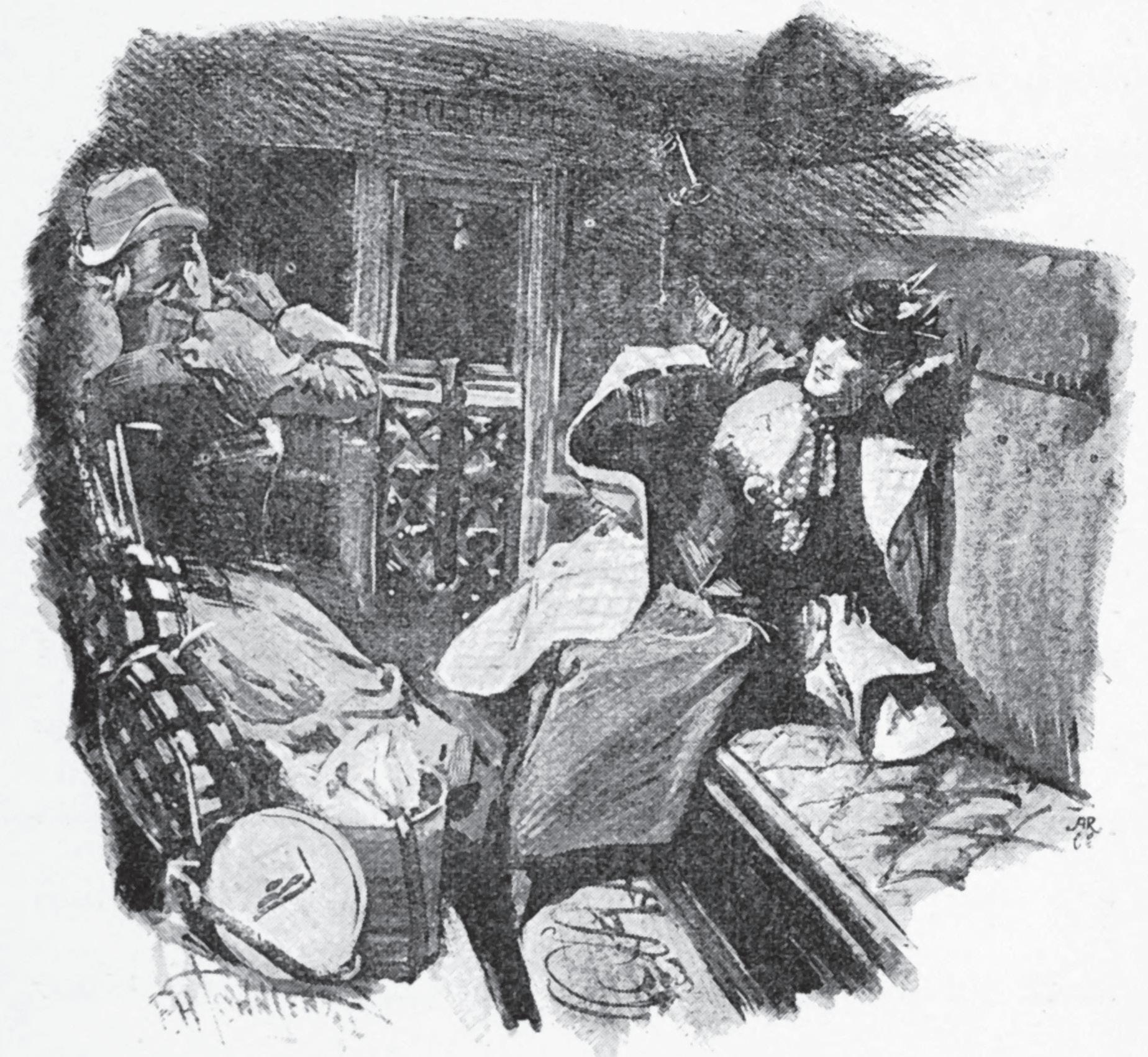
SUCCESS TO THE VINTAGE OF 1891.
IN THE VINE COUNTRY
We took a last look out of the train window at the electric star of the Eiffel Tower, perched among the elder stars in the sky behind us, and my cousin opened her bonnet-box and drew forth for the last time that widow’s cruse, the bottle of Grand St Lambert. There was about a wine-glassful left, and out of a thick green Pauillac mug we solemnly drank success to our first vintage.
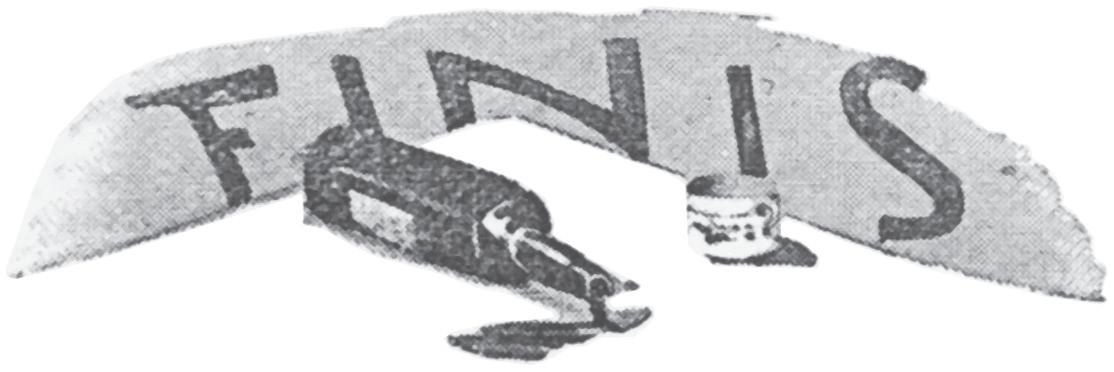
WINE WRITING AT ITS FINEST
ON BORDEAUX
Tales of the Unexpected from the World’s Greatest Wine Region
Susan Keevil
Why these wines are the most talked-about.
CHATEAU MUSAR
The Story of a Wine Icon Serge Hochar and the most famous wine to come out of Lebanon.
IN VINO VERITAS
A Collection of Fine Wine Writing, Past and Present
Susan Keevil
The quintessential browsing book for those who love wine.
STEVEN SPURRIER
A Life in Wine
The incidents, adventures, ideas and discoveries that formed a remarkable wine journey.
THE STORY OF WINE
From Noah to Now
Hugh Johnson
The new edition of Hugh Johnson’s captivating journey through wine history.
SHERRY
Maligned, Misunderstood, Magnificent!
Ben Howkins
This sun-drenched wine returns to our lives with a flourish.
WINE TASTING
Commemorative Edition
Michael Broadbent
The definitive guide that began it all.
10 GREAT WINE FAMILIES
A Tour Through Europe
Fiona Morrison MW
An up-close and personal insight into Europe’s most celebrated winemaking families.
www.academieduvinlibrary.com
VIKING IN THE VINEYARD
Stories from a Revolutionary Winemaker
Peter Vinding-Diers
Six decades of wine adventure: Peter's pioneering exploits from Stellenbosch to Sicily.
CLASSIC EDITIONS WAYWARD TENDRILS OF THE VINE
Ian Maxwell Campbell
An affectionate glimpse back to the Golden Age of wine.
